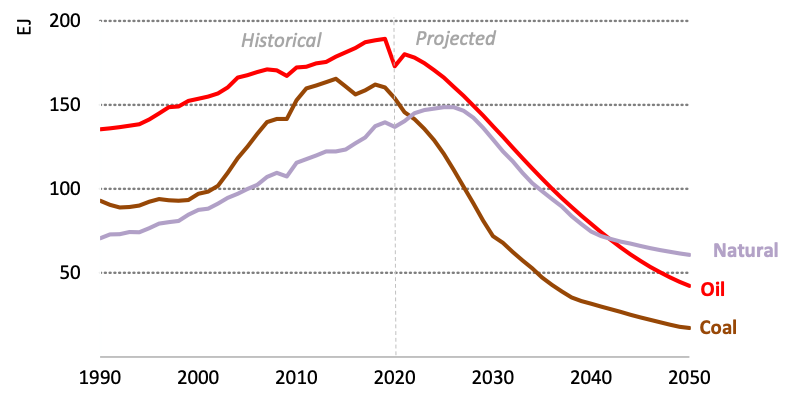Milieudefensie v Shell: Do oil corporations hold a duty to mitigate climate change?
Posted:
Time to read:
On 26 May 2021, the District Court of the Hague passed a judgment recognizing an obligation of Royal Dutch Shell to mitigate climate change. Shell was ordered to reduce all carbon dioxide (CO2) resulting from its global operations—including those from the combustion of oil-and-gas products by its customers—by 45 percent by 2030, compared with 2019. It is the first time a court has imposed on a corporation such a broad mitigation obligation. The judgment is based on tort law and includes references to human rights and climate treaties. This note presents a few preliminary, sceptical, but constructive thoughts about the Court’s analysis.
A parallel can be drawn with the judgment in Urgenda v the Netherlands, six years ago, where the same court found that the State had an obligation to reduce its greenhouse gas emissions by 25 percent by 2020, compared with 1990. Like the present decision, the District Court judgment in Urgenda was based on tort law (by contrast to the subsequent Supreme Court decision, which applied the European Convention on Human Rights). Urgenda, in retrospect, was a relatively low-hanging fruit: States certainly have mitigation obligations, as parens patriae, obviously under climate treaties and arguably under customary law, tort law, and, perhaps, human rights treaties. It is more difficult to make the same argument against profit-making corporations operating in a competitive environment (even when they control large shares of global CO2 emissions).
The present case was brought by seven NGOs and 17,379 individuals. The Court did not allow standing to the individual claimants on ground that they lack ‘a sufficiently concrete individual interest’ (§4.2.7). It admitted a class action by six of the NGOs, but only to represent the interests of the Netherlands’ residents (and, oddly, other residents of the Wadden Sea area, which straddles the German border). It did not allow standing to the seventh NGO (Action Aid), which was seeking to represent the interests of foreign populations; the Court considers that this would bundle dissimilar interests because ‘there are huge differences in the time and manner in which the global population at various locations will be affected by global warming’ (§4.2.3).
The Court found that Dutch law is applicable under the EU’s Rome II Regulation as ‘the law of the country in which the event giving rise to the

Figure 1: Fossil-fuel production in IEA’s 1.5°C pathway. IEA, Net Zero by 2050, IEA, Paris: Net Zero by 2050 Scenario – Data product – IEA. License: Creative Commons Attribution CC BY 3.0 IGO.
Fifth, having interpreted the duty of care as requiring 45 percent emission reduction by 2030 on a 2010 baseline, the Court decides, for obscure reasons, that the baseline for Shell should be 2019 rather than 2010. The judgment suggests that the claimants had taken 2019 as the baseline in their Summons (§4.4.38), but the Summons (and Shell’s Reply) only refer to a 2010 baseline. As Shell’s emissions increased during the 2010s, a 2019 baseline allows the company to emit more by 2030 than under a 2010 baseline. It is unclear how the Court comes to the conclusion that a 2019 baseline ‘sufficiently corresponds with the widely endorsed consensus that limiting global warming to 1.5°C requires a net reduction of 45% in global CO2 emissions in 2030 relative to 2010’ (§4.4.38).
Reality checks
One may object to the judgment that any reduction in Shell’s operations will immediately be replaced by its competitors. The Court alludes to a golden-rule principle that Shell should nonetheless regulate CO2 emissions, hoping that other companies do the same, or are constrained to do the same (§4.4.49). Surely, one must comply with the law, even if others do not—but if nobody complies with a norm, is that norm really law? The standard of care applicable under tort law should arguably be interpreted not only on the basis of global (mitigation) objectives, but also by reference to what companies are doing in similar circumstances—that is, what can realistically be expected from the respondent.
This observation reflects the tension that Koskenniemi describes between ascending and descending legal reasoning. In the climate change context, there certainly is a wide gap between arguments ascending from what is generally done and argument descending from what needs to be done. The Hague Court clearly has a predilection for descending reasoning: the Court applies to Shell a standard inferred from political objectives and scientific studies, notwithstanding its lack of recognition by oil companies. A more convincing judgment would have sought more balance between ascending and descending reasoning—between what we believe should be done and what companies generally do.
Has Shell been doing worse or better than other companies? Has it made a proper use of the market power it has, in a complex oligopolistic market, to promote cleaner energies, for instance developing gas rather than oil, reducing flaring and methane leaks, and allowing its customers to renegotiate long-term purchase agreements? Has it followed best practices? These questions, which the Court did not address, should have guided a judgment that could have held the corporation responsible in light of legitimate social expectations, rather than engaging in an apparent law-making exercise.
This post was originally published on EJIL:Talk! on 3 June 2021
Benoît Mayer is Associate Professor at the Faculty of Law of the Chinese University of Hong Kong.
OBLB types:
Share:
